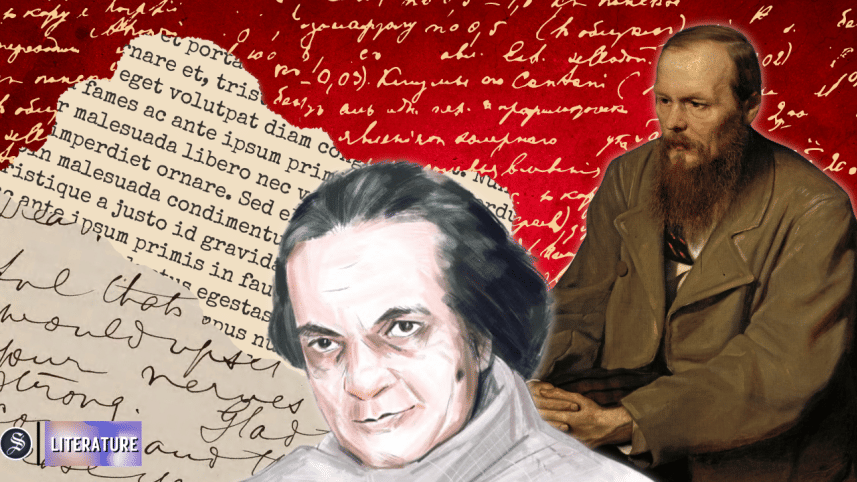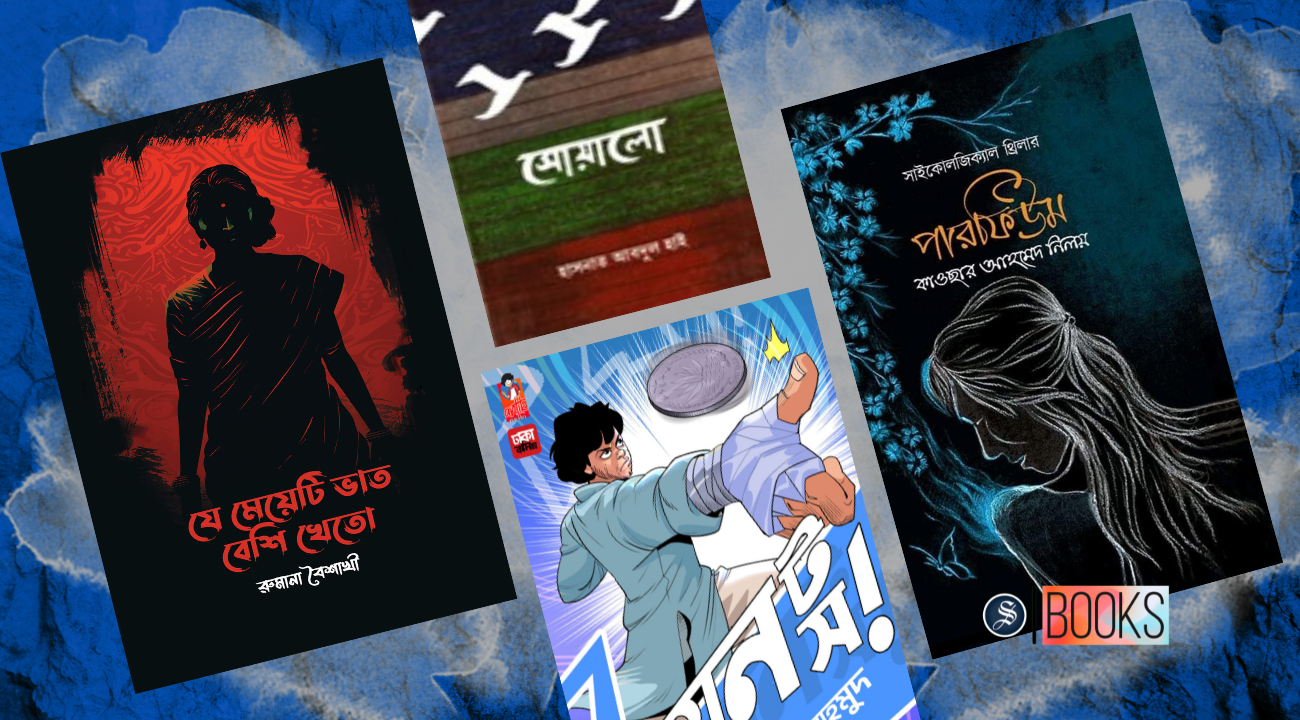“Dostoevsky” by Ahmed Sofa

Jean-Jacques Rousseau, in his book Du Contrat Social (The Social Contract, 1762), made a brilliant observation about Peter the Great. The all-powerful Peter deemed Western civilisation a delicious thing in taste and flavour. So did he ordain to cultivate it in Russia. The Russian Emperor wasn't to know that the agrarian cultivation and the cognitive cultivation do not conform to the same methods. As the Emperor's wishes must be obeyed, who better than the viziers, imperial officers, military commanders, courtiers, and all those in the Emperor's court! Thus, at the Russian Emperor's behest, Russian aristocracy buried their barbarism under the cloak of western logos.
To analyse Dostoevsky's psyche, the epoch defining Eastern and Western headlong cultural clash must be taken into context. The two separate streams of Dostoevsky's cognitive-mind, like the Ganges and the Jamuna, flowed parallelly without converging anywhere. Very likely the author didn't intend to draw any enlightened intellectual resolution about man and life; yet, he said something profound. And delve deep he certainly did. Unfortunately, he did this plunge to the depth and the subsequent ascent unconsciously. As a result, what "to be tender bathing in the deep sea of one's own heart" exactly signifies didn't really emanate from him.
An extraordinarily gifted writer was Dostoevsky. In ability to analyse human instinct, he was more capable and masterly than Tolstoy. So, in what way is he inferior to Tolstoy then? To answer this question, I must say—Dostoevsky was unable to perceive mortals as benignly as Tolstoy did. Constrained by this handicap, he, like an adept psychologist, had to peel back the layers of the human psyche to discern man's thousand faces. He laid bare all the strata of instincts that have been carved within a man's journey from the time of the prehistoric Neanderthals to the Homo Sapiens. Such manifestation was the only trait of his. Man's endeavours, diligence, pursuits, and struggles which were always in evidence parallelly with his primitive instincts, and which eventually were the catalysts for man's transformation from fierce instinctive animal to an enlightened social being never received their due respect from Dostoevsky. When he would analyse a character, as it were, he entered the animal kingdom of a man's heart. It was as if the mighty bulls and lions, gaping their jaws and claws, were always fighting in the minds of his characters.
Dostoevsky might be a brilliant novelist, might be the best, but I demur to acknowledge him as a great man. He just considered human beings as psychological instruments, which is why he couldn't determine the holistic value of man. Tolstoy, per contra, began to write holding human beings in high esteem but couldn't stick to it till the end. The synthesis between the profoundness of sensibility and intelligence he portrayed in the epic War and Peace written in his youth—he wanted to disavow it all in later years. The rarely found snippets of rationality in his novel Resurrection are like faint echoes of his former self. Eastern devotion drowned out the western reasoning in his old age; for which he declared War and Peace as the folly of his youth. It is amusing that the philandering Tolstoys of this world, who exhaust their youths in womanising, get labelled with the stigma of unfeigned sanctimonious devotion in later life. Rishi's saffron Kasaya only fit them better!
But it's different about Dostoevsky. No deep percipience about life could grow in his cognition. Therefore, his characters are like automata. As if they are being driven unconsciously by some instinctive reactions. Behind the personal life, family life, social and public lives of human beings, he could not find any relative truth, let alone the absolute truth. He didn't even inwardly feel any kind of ethical existence. The moral rectitude found in the characters he created as if is an absolute result of their animalistic nature. Human's dignity diminished to a great extent in the last age of Tolstoy. God was still worthy of reverence. The image of Christ was still like a vibrant sapling in his mind. So, he dragged his progressive characters from the vagaries of life as well as creative and reasoning endeavours, and prostrated them as penitents. This too is a kind of heathenism.
Still, he regarded God as man's loving father and Christ as one of their own. To demean human beings more than that was impossible for Tolstoy.
Dostoevsky had no God, no society, no religion (by blood, he was Christian though), no morals; but his only companion was the intricate study of human psychology throughout his life. In which he had tremendous faith. That too wasn't in his normal state of mind. If ever in doubt of himself, Dostoevsky would resort to viewing man with same questioning lens towards all the welfare, triumph of happiness, and magnificence of man, as can be seen in the conversation between God and the sceptic Mephistopheles in Goethe's Faust. Even Satan had some respect. In Dostoevsky's world, people are like fighting slithering reptiles; yet, cherish the preposterous ambition of wrapping the light of the soul like a heavenly turban around their heads. Dostoevsky's dramatis personae do nothing but fight. No transcendental desire drives them whatsoever.
In the rolling of the seasons, in the wheel of life, and in the sublunary world witnessed he one slogan etched everywhere.
In his stories, the wailing of heart through every warm arterial pulse echoed one and one message only: "Nil, sweet Fanny Adams, nothing anywhere".
Ahmed Yasin is an Indian-Bangladeshi author, fine artist, critic, polyglot, translator, musician, English language, and RP teacher—a polymath.



 For all latest news, follow The Daily Star's Google News channel.
For all latest news, follow The Daily Star's Google News channel. 

Comments